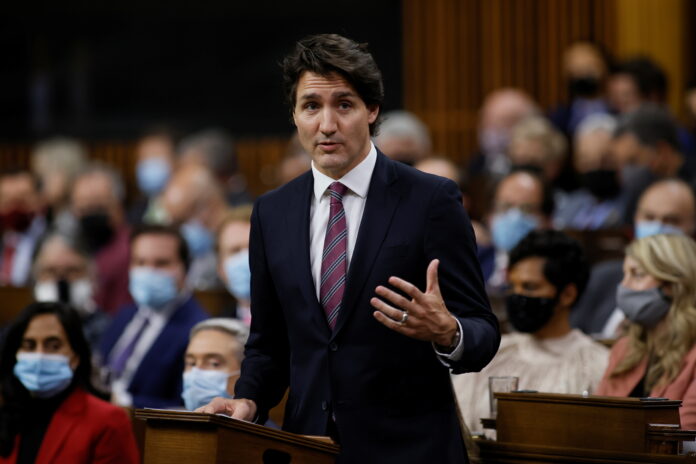Justin Trudeau, Canada’s 23rd prime minister and leader of the Liberal Party for over a decade, announced his resignation on Monday, bringing an end to his nearly nine-year tenure. Speaking at a press conference in Ottawa, the 53-year-old leader reflected on his time in office, sharing his achievements, challenges, and a significant regret that continues to weigh on him as the country heads into a pivotal general election later this year.
“If I have one regret, particularly as we approach this election – well, probably many regrets that I will think of. But I do wish we’d been able to change the way we elect our governments in this country so that people could simply choose a second choice, or a third choice on the same ballot,” Trudeau said.
His resignation comes as the Liberal Party grapples with declining poll numbers, internal divisions, and a resurgent Conservative opposition under Pierre Poilievre. Trudeau admitted that the challenges facing both his leadership and the party were insurmountable as Canada prepares for a crucial election later this year.
“This country deserves a real choice in the next election,” Trudeau stated. “And it has become clear to me that if I’m having to fight internal battles, I cannot be the best option in that election.”
When Trudeau first led the Liberals to victory in 2015, he was hailed as a progressive leader promising “sunny ways” and advocating for climate action and gender equality. His youthful charm and high-profile family background – he is the son of former Prime Minister Pierre Elliott Trudeau – helped him gain significant domestic support and international recognition.
However, mounting criticism over his handling of key issues like the rising cost of living and discontent within his own party ultimately led him to step down rather than face what was shaping up to be a difficult election campaign. His resignation follows the unexpected departure of his deputy prime minister and finance minister, Chrystia Freeland, late last year. Freeland had accused Trudeau of relying on “political gimmicks” to attract voters while ignoring long-term economic stability.
Trudeau also faced plummeting approval ratings, with recent polling showing the Liberal Party trailing the Conservatives by more than 20 points. Many Canadians have voiced frustration over economic challenges, including skyrocketing housing costs and inflation.
The Rise of the Right
As Trudeau’s party struggles, right-wing populism has gained ground under Conservative leader Pierre Poilievre. Poilievre has been a vocal critic of Trudeau’s economic and social policies. Following Trudeau’s resignation, Poilievre released a statement outlining his campaign themes, which include “taking back control” over Canada’s borders, finances, and national priorities. “We’ll cap spending, axe taxes, reward work, build homes, stop crime, secure borders, and put Canada first,” Poilievre said in a video message to supporters.
Trudeau, in turn, warned against the growing influence of Poilievre’s conservatism, calling it a threat to Canada’s progress on issues like climate change and social equity. “Stopping the fight against climate change doesn’t make sense,” Trudeau said. “Backing off on diversity and the values that have always brought Canadians together is not the right path for this country. People would have been looking for things they have in common, instead of polarizing and dividing Canadians against each other.”
What Comes Next
With Trudeau stepping down, the Liberal Party now faces a leadership race. Speculation is already swirling around potential candidates, including former Bank of Canada and Bank of England governor Mark Carney, current Foreign Minister Mélanie Joly, and even Chrystia Freeland, despite her earlier criticisms of Trudeau.
The Liberal Party’s national executive is expected to meet this week to outline the process for selecting a new leader, with the contest likely to take several months. In the meantime, Trudeau has received approval from Canada’s governor general to suspend parliamentary proceedings until March 24, providing the Liberals time to regroup before facing opposition in the House of Commons.



